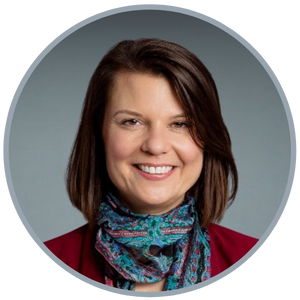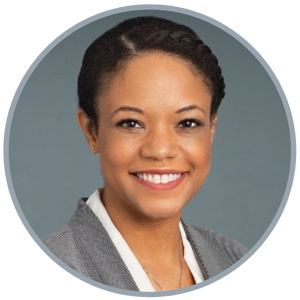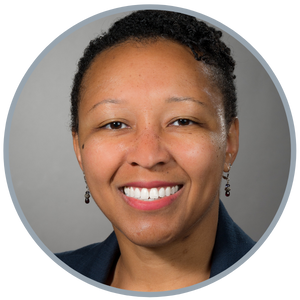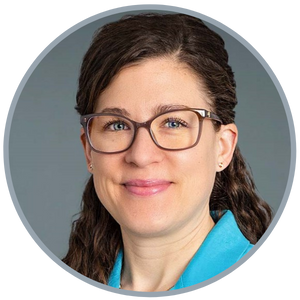
Lessons Learned Implementing Diabetes Prevention Programs in Diverse Settings
CME Credit Available for Physicians!
More than one-third of adults in the United States have prediabetes, but fewer than one-fifth are diagnosed. Since the seminal Diabetes Prevention Program (DPP) was established as efficacious in 2002, the intervention has been implemented in hospital, community, work, and other settings. Despite having an efficacious behavioral lifestyle program, the prevalence of prediabetes has increased by almost 5% in past decade, and an estimated 30% of adults are undiagnosed. Only ~600,000 of the 96 million adults (0.6%) with diagnosed prediabetes had enrolled in the National DPP as of April 2022. This session will discuss approaches for reducing barriers to accessing the DPP using multi-level approaches in diverse populations. Speakers will review additional supports provided to adapt the program to the differing needs of programs delivered in the healthcare system as well as through community-based programs. Discussion will inform best practices for increasing uptake of the program to improve diabetes prevention.
Originally presented at NUTRITION 2024, ASN's flagship meeting which was held June 29 to July 2, 2024 in Chicago, IL.
Special ASN Member Benefit - 50% Off for Members!
ASN members receive this course for 50% off. Login now to get the $10 special member rate. If you do not see the member rate displayed for you after logging in, please contact [email protected].
Not an ASN member? Click here to join ASN to receive member rates on all DiscoverNUTRITION products!
Speakers





Jeannette Beasley, PhD
Associate Professor
New York University
Elaine DeLeon, MD, MHS
Clinical Assistant Professor, Departments of Medicine and Population Health
NYU Grossman School of Medicine
Stephanie Fitzpatrick, PhD
Professor
Northwell Health
Margrethe Horlyck-Romanovsky, DrPH
Assistant Professor
Health and Nutrition Sciences
City University of New York, Brooklyn College
Emily Johnston, PhD, MPH, RDN, CDCES
Research Assistant Professor, Department of Medicine
NYU Grossman School of Medicine
Learning Objectives
- Describe various approaches for reducing barriers to accessing the Diabetes Prevention Programs in diverse populations
- Explain how to adapt the Diabetes Prevention Program for delivery in health care and community-based settings
- Identify best practices for increasing uptake of Diabetes Prevention Programs
Competencies
The Desirable Physician Attributes addressed in this activity are:
- Systems-Based Practice
- Medical Knowledge
Target Audience
- Researchers
- Physicians
- Dietitians
- Physician Assistants and Nurse Practitioners
- Academic Faculty
- Health Educators
- Behavioral Specialists
- Nurses
- Pharmacists
- Undergraduate/Graduate Students/Postdoctoral Fellows
- Medical Students and Residents
- Wellness Professionals
This activity includes the following presentations:
Welcome and Introductions
Jeannette Beasley, PhD
Associate Professor
New York Universit
Evaluating the Implementation of a Digital Diabetes Prevention Program in an Integrated Health Care Delivery System: A Natural Experiment
Stephanie Fitzpatrick, PhD
Professor
Northwell Health
NYC Caribbean Diabetes Prevention Program: A Cultural Adaptation
Margrethe Horlyck-Romanovsky, DrPH
Assistant Professor
Health and Nutrition Sciences
City University of New York, Brooklyn College
Adapting the Diabetes Prevention Program for Older Adults
Emily Johnston, PhD, MPH, RDN, CDCES
Research Assistant Professor, Department of Medicine
NYU Grossman School of Medicine
Bridging the Gap: Diabetes Prevention for Hispanic Adults
Elaine DeLeon, MD, MHS
Clinical Assistant Professor, Departments of Medicine and Population Health
NYU Grossman School of Medicine
Panel Discussion
Disclosure Policy
It is the policy of the American Society of Nutrition, in compliance with the Standards for Integrity and Independence in Accredited Continuing Education to ensure that education presents learners with only accurate, balanced, and scientifically justified recommendations and protects learners from promotion, marketing, and commercial bias. ASN requires disclosure of all financial interest that the planning committee (including ASN staff) or faculty members have with ineligible companies. All faculty and contributors to this continuing education activity have disclosed any relevant financial relationship that may have direct bearing on the subject matter of this program. Specific disclosure information is in the course materials.
The American Society for Nutrition supports fair and unbiased participation of individuals in its education activities. Any real or potential conflicts of interest must be identified and managed. All relevant financial relationships with commercial interests that directly impact and/or might conflict with ASN activities must be disclosed, or disclosure that no relevant financial relationships exist must be documented. Other relationships that could cause private interests to conflict with professional interests must also be disclosed. This policy is intended to openly identify any potential conflict so that participants in an education activity are able to form their own judgments about the presentation. In addition, disclosure must be made of presentations on drugs or devices or uses of drugs or devices that have not been approved by the Food and Drug Administration.
Speakers
Jeannette Beasley, PhD, Associate Professor, New York University
No relevant financial relationship(s) with ineligible companies to disclose.
Elaine DeLeon, MD, MHS, Clinical Assistant Professor, Departments of Medicine and Population Health, NYU Grossman School of Medicine
No relevant financial relationship(s) with ineligible companies to disclose.
Stephanie Fitzpatrick, PhD, Professor, Northwell Health
No relevant financial relationship(s) with ineligible companies to disclose.
Margrethe Horlyck-Romanovsky, DrPH, Assistant Professor, Health and Nutrition Sciences, City University of New York, Brooklyn College
No relevant financial relationship(s) with ineligible companies to disclose.
Emily Johnston, PhD, MPH, RDN, CDCES, Research Assistant Professor, Department of Medicine, NYU Grossman School of Medicine
No relevant financial relationship(s) with ineligible companies to disclose.
Planners
The following individuals served on the NUTRITION 2024 Scientific Program Committee. This session was included in the scientific program of NUTRITION 2024, ASN's flagship meeting which was held from June 29 to July 2, 2024.
Daniel Hoffman, PhD, Rutgers University
No relevant financial relationship(s) with ineligible companies to disclose.
Debbie Humphries, PhD, MPH, Yale University
No relevant financial relationship(s) with ineligible companies to disclose.
Stephanie Martin, PhD, University of North Carolina at Chapel Hill
No relevant financial relationship(s) with ineligible companies to disclose.
Stefan Pasiakos, PhD, National Institutes of Health, Office of Dietary Supplements
No relevant financial relationship(s) with ineligible companies to disclose.
Drew Sayer, PhD, University of Alabama at Birmingham
No relevant financial relationship(s) with ineligible companies to disclose.
Kathryn Starr, PhD, RD, Duke University School of Medicine and Durham VA Medical Center
No relevant financial relationship(s) with ineligible companies to disclose.
Krista Zanetti, PhD, RD, National Institutes of Health
No relevant financial relationship(s) with ineligible companies to disclose.
Staff
Michelle Crispino, CAE, DES, American Society for Nutrition
No relevant financial relationship(s) with ineligible companies to disclose.
Stephanie Dunbar, RD, MPH, American Society for Nutrition
No relevant financial relationship(s) with ineligible companies to disclose.
Gwen Twillman, American Society for Nutrition
No relevant financial relationship(s) with ineligible companies to disclose.
Accreditation Statement
This activity has been planned and implemented in accordance with the accreditation requirements and policies of the Accreditation Council for Continuing Medical Education (ACCME) through the American Society for Nutrition (ASN). The American Society for Nutrition is accredited by the ACCME to provide continuing medical education for physicians.
Credit Designation
Physicians
The ASN designates this enduring materials activity for a maximum of 1.5 AMA PRA Category 1 Credits™. Physicians should claim credit commensurate with the extent of their participation in the activity. The certificate you receive upon completion of this education activity will list the amount of continuing medical education credit you were awarded. Please use this documentation for your CME licensing or certification needs.
Learners seeking CME credit are required to pass a post-test assessment of subject matter comprehension. To pass the post-test assessment, learners must correctly answer 75% of the questions.
Non-physician Professionals
For registered dietitians, the Commission on Dietetic Registration (CDR) recognizes enduring educational activities offered by ACCME accredited providers. For any additional questions, participants can contact CDR at [email protected].
ASN does not offer CME credit to non-physicians. However, all non-physician professionals will be able to complete an evaluation and download a Certificate of Participation. This certificate designates your participation in this education activity. It lists the amount of continuing medical education credit that has been designated for physicians by ASN. You should be able to use this documentation for your licensing or certification needs. To determine if activities designated for AMA PRA Category 1 Credit™ are acceptable for your licensing or certification needs, please contact your credentialing body directly. Please note ASN cannot guarantee its acceptance.
Learners seeking a Certificate of Participation are required to pass a post-test assessment of subject matter comprehension. To pass the post-test assessment, learners must correctly answer 75% of the questions.
Commercial Support
There is no commercial support for this activity.
Available Credit
- 1.50 AMA PRA Category 1 Credit™
This activity has been planned and implemented in accordance with the accreditation requirements and policies of the Accreditation Council for Continuing Medical Education (ACCME) through the American Society for Nutrition (ASN). The American Society for Nutrition is accredited by the ACCME to provide continuing medical education for physicians.
The ASN designates this activity for a maximum of 1.50 AMA PRA Category 1 Credit™. Physicians should claim credit commensurate with the extent of their participation in the activity.
- 1.50 Certificate of Participation
ASN does not offer CME credit to non-physicians. However, all non-physician professionals of this activity will be able to complete an evaluation and download a Certificate of Participation. This certificate designates your participation in this education activity. It lists the amount of continuing medical education credit that has been designated for physicians by ASN. You should be able to use this documentation for your licensing or certification needs. To determine if activities designated for AMA PRA Category 1 Credit™ are acceptable for your licensing or certification needs, please contact your credentialing body directly. Please note ASN cannot guarantee its acceptance.
Price
Special ASN Member Benefit - 50% Off for Members!
ASN members receive this course for 50% off. Login now to get the $10 special member rate. If you do not see the member rate displayed for you after logging in, please contact [email protected].
Not an ASN member? Click here to join ASN to receive member rates on all DiscoverNUTRITION products!

 Facebook
Facebook X
X LinkedIn
LinkedIn Forward
Forward